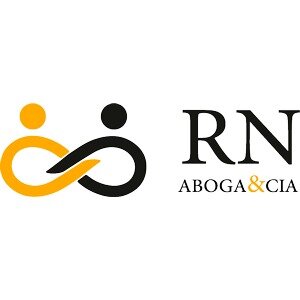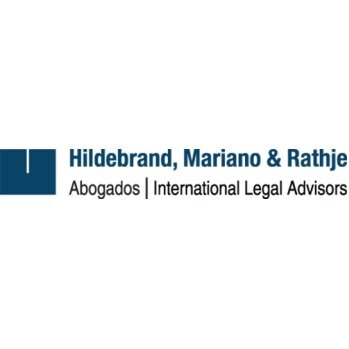Best Restructuring & Insolvency Lawyers in Seville
Share your needs with us, get contacted by law firms.
Free. Takes 2 min.
List of the best lawyers in Seville, Spain
About Restructuring & Insolvency Law in Seville, Spain
Restructuring and insolvency law in Seville, Spain deals with legal procedures designed to help individuals and companies facing financial difficulties. The primary goal of these laws is to provide entities with a pathway to reorganize their debts, restructure their finances, or, if necessary, liquidate assets to satisfy creditors in an orderly manner. Seville follows Spain's national insolvency legislation, mainly the Spanish Insolvency Act (Ley Concursal), which sets out the framework for insolvency proceedings, pre-insolvency mechanisms, creditor arrangements, and the protection of both debtors and creditors. Local courts in Seville play a vital role in managing these procedures and ensuring compliance with legal standards.
Why You May Need a Lawyer
Seeking professional legal help in restructuring and insolvency cases is crucial. Here are some common situations where you may need a lawyer:
- Your company is unable to meet debt obligations and requires formal restructuring to avoid liquidation.
- You are an individual overwhelmed by debt and need guidance on possible relief or insolvency declaration.
- Your business faces creditor lawsuits, asset seizures, or other enforcement actions.
- You are a creditor seeking to recover debts from an insolvent company or individual.
- You want to explore pre-insolvency agreements to renegotiate debt terms and avoid court intervention.
- You need representation in court during insolvency proceedings.
- You are an investor considering acquiring assets from an ongoing insolvency process.
In each of these scenarios, a lawyer can provide invaluable advice, represent your interests, and navigate the complex technicalities of Spanish insolvency law.
Local Laws Overview
Seville, like the rest of Spain, operates under the Ley Concursal, which underwent major reforms in 2020 and 2022. Here are some key aspects relevant to the local context:
- Pre-Insolvency Mechanisms: Debtors can enter negotiations with creditors to reach payment agreements before formal insolvency is declared.
- Insolvency Declaration: Debtors must apply for insolvency within two months of becoming unable to meet their regular obligations.
- Types of Insolvency: The law distinguishes between voluntary insolvency (declared by the debtor) and necessary insolvency (initiated by a creditor).
- Creditor Committees: Creditors are grouped according to their claims and can negotiate with the debtor for repayment plans or haircuts.
- Protection of Essential Assets: Certain assets may be protected to allow continued business operations during restructuring.
- Liquidation: If restructuring efforts fail, the insolvent party’s assets are liquidated under court supervision to pay off creditors in a legally established order of priority.
- Fresh Start Mechanisms: Individuals may, in certain cases, benefit from mechanisms that allow for partial debt forgiveness and a fresh financial start.
All insolvency matters in Seville are handled by specialized courts and monitored by court-appointed insolvency administrators (administradores concursales).
Frequently Asked Questions
What qualifies as insolvency in Spain?
Insolvency is defined as the inability of an individual or company to regularly meet payment obligations as they become due. This includes ongoing cash flow problems or an inability to pay debts when they are required.
How do insolvency proceedings begin in Seville?
Proceedings can be initiated voluntarily by the debtor or compulsorily by a creditor. An application is filed in the local commercial court (Juzgado de lo Mercantil), which reviews the case and decides if insolvency should be declared.
What is the role of an insolvency administrator?
The insolvency administrator oversees the process, evaluates the debtor's assets and liabilities, manages creditor claims, ensures compliance with the legal process, and may supervise or direct the business during proceedings.
Can I avoid insolvency through restructuring?
Yes, Spanish law prioritizes restructuring agreements between the debtor and creditors. Negotiated solutions can prevent formal insolvency proceedings and enable the business or individual to recover financially.
Who gets paid first if my assets are liquidated?
The law establishes a strict order of priority. Secured creditors are generally first in line, followed by employees, tax authorities, and then unsecured creditors. Shareholders are paid last, if at all.
What protection do I have against creditors during insolvency?
Once insolvency is declared, legal actions by creditors to enforce claims or seize assets are generally suspended. This legal shield provides time to restructure or liquidate in an organized way.
Can individuals benefit from a "fresh start" in Spain?
Under certain circumstances, individuals may access a system allowing partial debt forgiveness after liquidation and payment of a portion of their debts, enabling a financial fresh start.
How long do insolvency proceedings take?
The duration varies widely. Simple cases may resolve within a year, while complex corporate insolventcies with many creditors or litigation may take several years.
Are directors liable for company insolvency?
Directors may be found liable if they acted negligently or committed wrongful trading. Timely filing for insolvency and acting in good faith can limit personal liability risks.
What should I do if a company owing me money enters insolvency?
You should formally register your claim with the insolvency administrator and gather documentation proving the debt. Legal advice is recommended to maximize recovery chances.
Additional Resources
For those seeking more information or assistance, the following organizations and resources in Spain may be helpful:
- Juzgados de lo Mercantil de Sevilla: Local commercial courts handle insolvency proceedings and provide information on procedures.
- Instituto de Censores Jurados de Cuentas de España (ICJCE): The Spanish Institute of Chartered Accountants offers guidance for businesses in financial distress.
- Registro de Expertos Contables (REC): Registry of accounting experts available for advice on financial evaluation.
- Bar Association of Seville (Ilustre Colegio de Abogados de Sevilla): Offers directories of specialized insolvency lawyers and resources for the public.
- National Insolvency Registry (Registro Público Concursal): Provides official publications and updates on ongoing insolvency cases in Spain.
Next Steps
If you are facing financial difficulties, suspect imminent insolvency, or have claims against a struggling company, consider the following steps:
- Assess your financial situation and gather all relevant documentation regarding debts and assets.
- Consult with a restructuring and insolvency specialist lawyer in Seville to understand your options.
- Explore negotiated solutions or pre-insolvency agreements before formal proceedings if possible.
- If advised, prepare to file for insolvency or defend a claim in your local commercial court.
- Stay informed about your rights throughout the procedure and maintain open communication with all parties involved.
Navigating restructuring and insolvency law requires expert guidance. A local lawyer will help protect your interests, ensure legal compliance, and work towards the most favorable outcome.
Lawzana helps you find the best lawyers and law firms in Seville through a curated and pre-screened list of qualified legal professionals. Our platform offers rankings and detailed profiles of attorneys and law firms, allowing you to compare based on practice areas, including Restructuring & Insolvency, experience, and client feedback.
Each profile includes a description of the firm's areas of practice, client reviews, team members and partners, year of establishment, spoken languages, office locations, contact information, social media presence, and any published articles or resources. Most firms on our platform speak English and are experienced in both local and international legal matters.
Get a quote from top-rated law firms in Seville, Spain — quickly, securely, and without unnecessary hassle.
Disclaimer:
The information provided on this page is for general informational purposes only and does not constitute legal advice. While we strive to ensure the accuracy and relevance of the content, legal information may change over time, and interpretations of the law can vary. You should always consult with a qualified legal professional for advice specific to your situation.
We disclaim all liability for actions taken or not taken based on the content of this page. If you believe any information is incorrect or outdated, please contact us, and we will review and update it where appropriate.
















